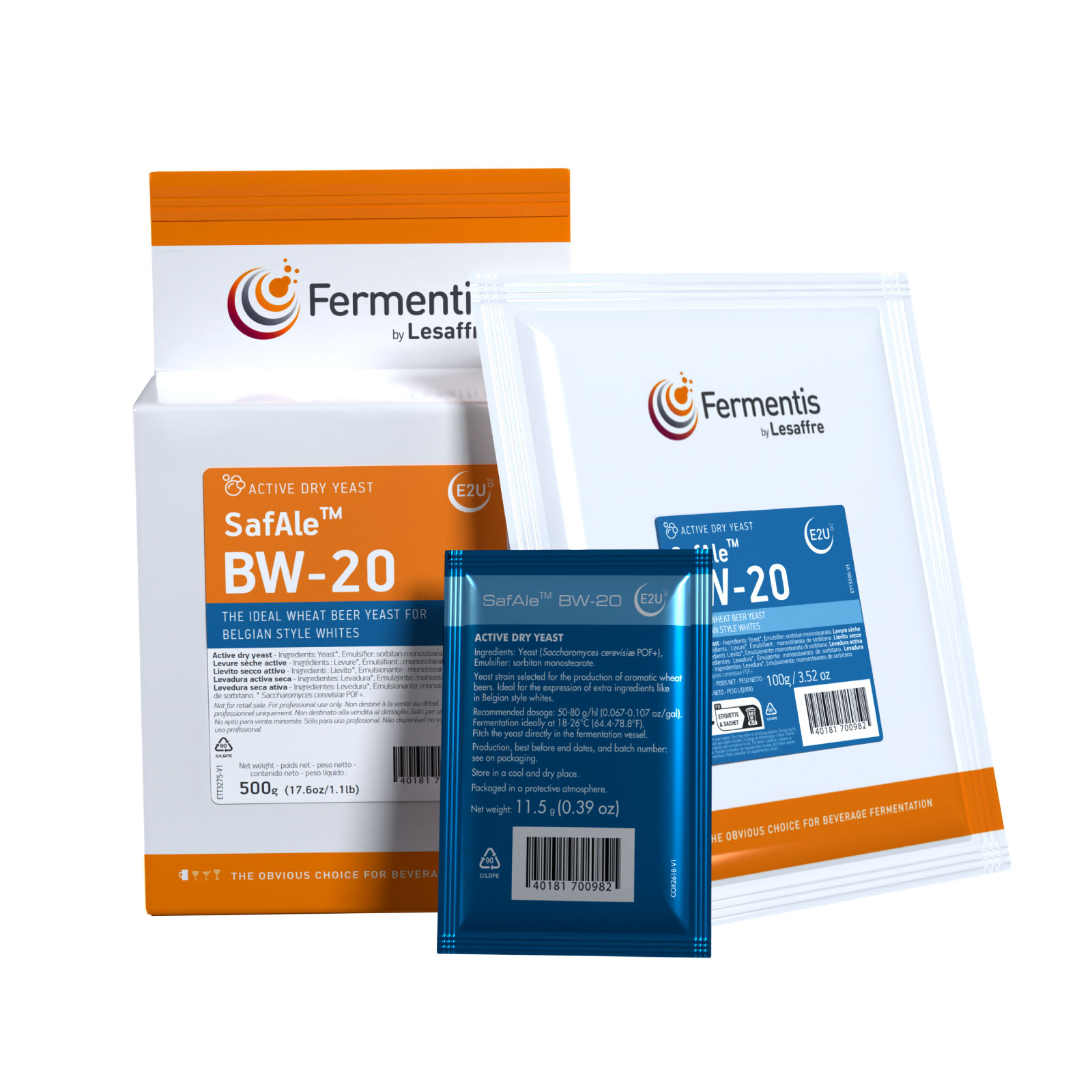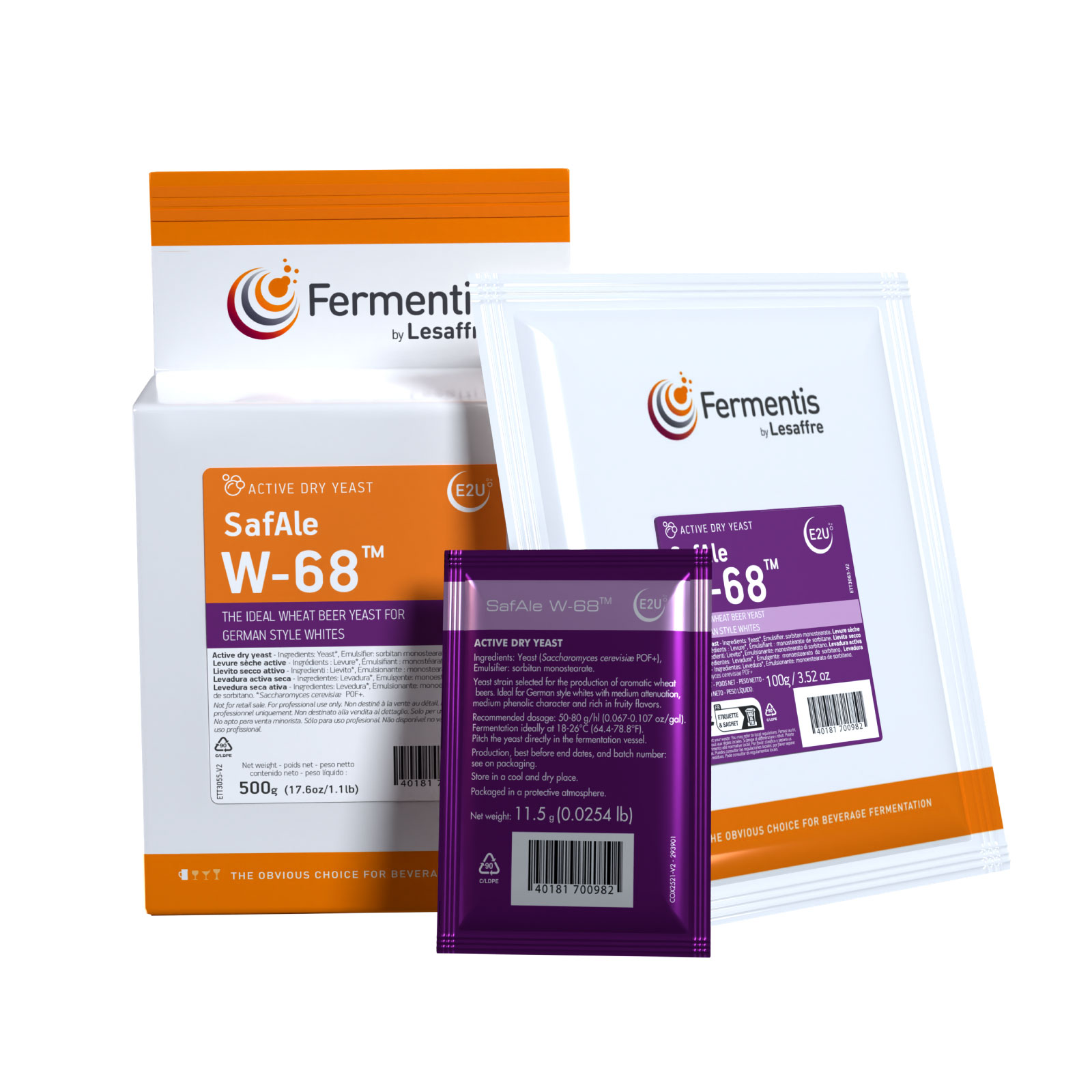Find out everything you need to know about this innovative fermentation solution, by reading our question & answers with the product R&D Manager, Philippe Janssens.
What does the term ‘wheat beer’ refer to?
In Flemish and Dutch, Witbier means both “wheat beer” and “white beer.” Similarly, in German, “Weisse” means “white,” and “Weizen” means “wheat.”
This linguistic link might lead one to think that all wheat beers are “white” or at least pale due to their common Germanic roots. However, it’s important to note that some wheat beer styles can be notably dark, such as the German Dunkels Weissbier, also known as Dunkelweizen.
So, it’s worth mentioning that wheat beers come in various colors.
Why do wheat beers have different colors?
The differing colors of German Wheat Beers are due to the prevalent use of malted wheat, which gives a rich golden hue to the beer. This color can even become darker in styles like Dunkel Weizen or Weizenbock.
In contrast, Belgian-style Witbier is typically made from a blend of malted and non-malted cereals, sometimes incorporating wheat flour, resulting in a much paler appearance.
Besides color, what distinguishes German and Belgian wheat beers?
Both beer styles share the common characteristic of being brewed with wheat, a difference from the usual barley malt. However, they differ significantly beyond this shared trait. German Weizen, or Weissen, are generally limited to only a few selected ingredients: malt, wheat, hops, yeast, and water. These beers typically contain 40% malted wheat, although this ratio can extend up to 70%. Consequently, their aromas primarily come from the yeast-wheat combination, resulting in robust phenolic, banana, and sweet tutti-frutti notes. German Weizens adhere to these standards, which exclude the addition of extra spices.
Belgian Witbier, in contrast, relies on a lower percentage (not exceeding 40%) of unmalted wheat. The uniqueness of Belgian Witbier comes from the use of added spices like coriander, lavender, or orange zest or peels. Coupled with a less phenolic yeast, the base beer tends to be milder, serving as a canvas for the infusion of additional ingredients.
How do Fermentis’ new products meet these specific styles needs?
Fermentis has developed two yeast strains tailored to the diverse world of wheat beer styles. SafAle™ W-68™ and SafAle™ BW-20 are engineered to enhance the distinctive characteristics of these styles while preserving their essence.
SafAle W-68™, a renowned German yeast strain from Weihenstephan, Germany, is ideal for traditional German styles. It offers medium attenuation, a moderate phenolic flavor, and prominent banana and tutti fruti notes.
How do these different strains complement SafAle™ WB-06?
Yes, SafAle™ WB-06 is indeed part of our historic yeast strain offerings. This versatile yeast strain can produce a range of characteristics depending on the conditions applied, including a pronounced phenolic and estery profile with notes of banana and apple, culminating in a typically dry finish. It is suitable for both German and Belgian style wheat beers, often producing highly attenuated, dry beers with a touch of acidity and crispness.
Please note that this is a simplified overview of our yeast strains for wheat-based beers, and we encourage brewers to experiment, as any of the three strains can be used to create exceptional Belgian, German, or other unique wheat beer styles.





